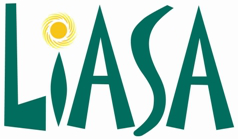Introduction
This paper will describe the advocacy campaign for the implementation of the Open Access mandate at the University of Pretoria.
The University of Pretoria embraced the Open Access movement with enthusiasm as it enhances the visibility and impact of an institution and its authors. Its first Open Access repository UPeTD was implemented in 2000 and the submission of electronic theses and dissertations became mandatory in 2003. The second institutional repository, UPSpace was implemented in 2006 and the policy for mandatory submission of research papers was formally adopted in May 2009.
What is advocacy?
According to the ALA website, advocacy is defined as “the process of turning passive support into educated action by stakeholders” and the Canadian Association of Public Libraries defines it as “advocacy is a planned, deliberate, sustained effort to raise awareness of an issue. It’s an ongoing process in which support and understanding are built incrementally over an extended period of time and using a wide variety of marketing and public relations tools.”
Helieisar rightfully mentions that to write and plan advocacy plans is the easy part, but it is more difficult to put those plans in action.
Ghosh identified 4 P’s that are essential for advocacy:
• Passion : commitment to meeting the audience needs
• Purpose : setting goals by defining problems, causes and solutions
• People : Identifying and analysing role players
• Persuasion : Developing messages and selecting strategies and tools.
The advocacy campaign at the University of Pretoria
At UP these elements were implemented as follows:
Passion: In order to showcase the benefits of the Open access research outputs, the Open Scholarship Office started submitting research output on behalf of the authors.
Purpose: By the adoption of the mandate the goal was set clearly, namely to assist the University of Pretoria in providing open access to scholarly articles and conference papers resulting from research done at the University, and which are wholly or in part supported by public funding, staff and students are required to submit peer-reviewed postprints of their articles and published conference papers to UPSpace, the University’s institutional repository (https://www.up.ac.za/dspace/), AND give the University permission to a) make the content freely available and b) to take necessary steps to preserve files in perpetuity.
People : Different stakeholders were involved and approached in this advocacy process : Deans of the faculties, University Senate, the Department of Research and Innovation, Department of Library Services’ information specialists, Departmental heads, UP researchers and students.
Persuasion : A variety of strategies and tools were utilized in the advocacy campaign. This involved the development of training material, posters, bookmarks, web site development, presentations at various committees, meetings or research groups, talks, emails to faculty to encourage the submission of articles, annual Open Access day celebrations, forging of partnerships and campus competitions.
Conclusions
Librarians can play a leading role in developing an Open access culture at their institutions. Open access campus advocacy is an ongoing process and mandate implementation is a challenging endeavour. It is obvious that successful advocacy strategies involve time, commitment and cooperation from various stakeholders.
References:
Ghosh, M 2011 Advocacy for open access : a selected review of the literature and resource list. Library Hi Tech News, no. 2, pp. 19-23.
Helieisar, A. (2008), “Library advocacy in Micronesia”, paper presented at 74TH IFLA General Conference and Council, World Library and Information Congress, 10-14 August, Que´bec, available at: www.ifla.org/IV/ifla74/papers/093-Helieisar-en.pdf

